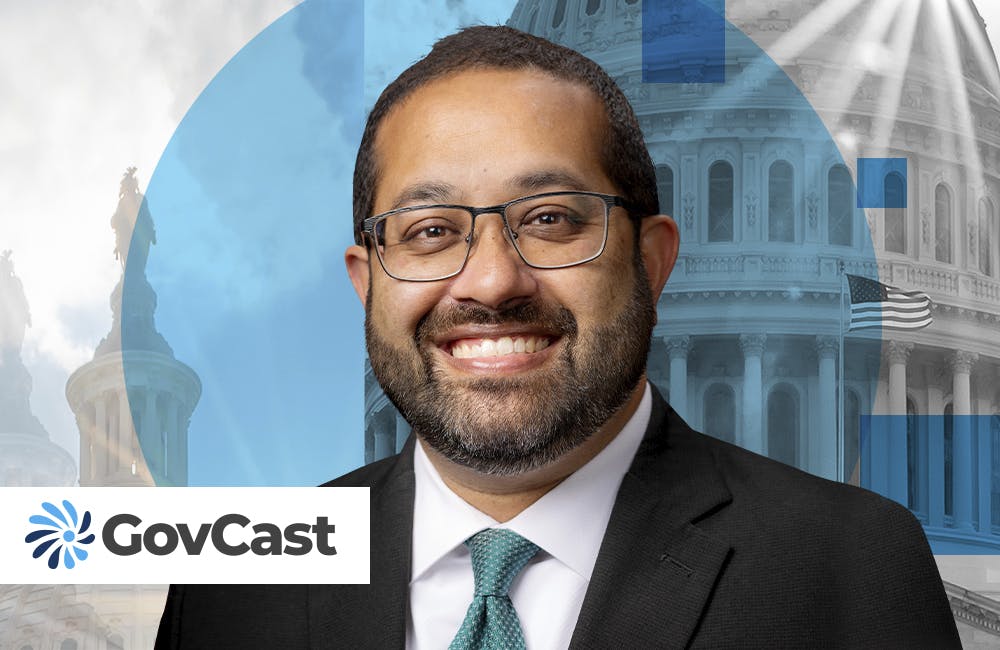VA Increased FOIA Processing Thanks to Automation
The agency is using capacities like RPA to expedite FOIA review, decreasing the time between request and document release.

Over the past two years, federal agencies have been inundated with requests under the Freedom of Information Act (FOIA) — the law that enables citizens to directly engage with government by requesting access to certain files and records. Pandemic-related challenges exacerbated agency FOIA teams working to process those requests under changing circumstances and working environments.
With the presidential administration’s call for agencies to improve service delivery and rebuild trust in government, improving processing times for FOIA requests is one way to ensure agencies are continuing to meet their obligation to the legislation.
As the largest of the federal civilian agencies, the Department of Veterans Affairs has one of the most active FOIA departments. Requests from the public have included a multitude of different areas — benefits claims, medical records, grant awards, emails, meeting notes and more.
In fiscal year 2021, the agency received more FOIA requests than it did in fiscal year 2019 — from 21,336 to 27,762. From a preliminary glance at the full list of these requests, one can see many of the requests received in 2021 pertained to things like COVID debt relief data, vaccination rates and other matters that were pertinent to the 2020 COVID-19 pandemic.
The amount of requests it was able to process dipped in fiscal 2020. This is in part due to the disruption in working location, the need for increased remote access to systems and the influx of paper mail. Plus, like many U.S. hospitals, the agency had to handle unprecedented numbers of patients sick with COVID-19 and stand up a nationwide vaccination effort quickly.
The number of requests the agency processed, however, rose again in fiscal 2021 and surpassed the amount processed before the pandemic. Part of this is thanks to its FOIA office introducing more automation into its workflows.
“With FOIA processing, we look for opportunities to not only reduce our FOIA backlog, but also provide timely records and responses to our FOIA requesters. Requests for records quite often have a finite time that they are useful to the requester; we recognize that and have actively worked to reduce our backlog through gained efficiencies, some of which is done through automation,” said Stacy Ekis, FOIA officer at the Veterans Health Administration (VHA).
Many of these opportunities hinge on reducing work that would be redundant for FOIA officers to undertake, particularly repetitive or burdensome tasks that would be a distraction from the critical work of adjudication.
“One such automated process we use is called ‘deduping’ — in other words, removing duplicate records. It’s not an efficient use of time for the FOIA officer to process the same pages over and over again, nor does anyone want to receive numerous copies of the same documents. Reducing duplicates cuts down on FOIA processing time and costs,” Ekis said.
Another critical application of automation within VA’s FOIA process has been through tools that automatically redact personally identifying information like social security numbers, a task that would otherwise require officers to manually review entire documents.
“We also utilize technology to find keywords in records that need to be redacted and to identity records that are responsive to a FOIA request. A FOIA officer manually removing the same social security number 20 times is not efficient. We actively look for ways to utilize our software capabilities to their maximum potential,” Ekis said.
These efficiencies have reduced the amount of time VA FOIA officers would otherwise dedicate to repetitive tasks, decreasing the agency’s longstanding backlog and expediting the delivery of newly requested documents while saving on operational costs and increasing workforce efficiency.
Going forward, the agency is open to sharing new applications with other agencies that oversee major FOIA programs, as well as integrating the lessons from other wings of the federal government that have begun to explore automating their FOIA process.
“We are an active part of the Chief FOIA Officer Council (CFOC) Technology Subcommittee and also engage with NARA and [Department of Jusice]. These entities are on the forefront of ensuring that the FOIA technology is able to meet the ever-evolving types of records and needs of our FOIA requesters. Technology makes the world go round, and within VA we also work hand-in-hand with the VA’s Office of Information and Technology as well as the VA FOIA Service to ensure we have the latest technology and proactively address any technical limitations. We view our collaborations as an opportunity to continue learning and growing with an eye on continued improvement,” Ekis said.
This is a carousel with manually rotating slides. Use Next and Previous buttons to navigate or jump to a slide with the slide dots
-

DOD Has a New Cyber Resiliency Assessment Program
Defense officials tout the continuous assessment feature and scalability of the new program amid increased cyber threats.
5m read -

Transitioning Systems for Modern Agency Missions
IT modernization is a constant process necessary for improving customer service, mission delivery and collaboration.
40m watch -

Cyber Resilience and Recovery Amid Evolving Cyber Threats
Data durability is a key aspect of NIST’s cybersecurity framework for public and private organizations.
21m listen -

How Tech Enables Environmental Justice at EPA
The agency wants to eliminate bias and establish new tech standards to reduce greenhouse gas emissions.
39m listen









